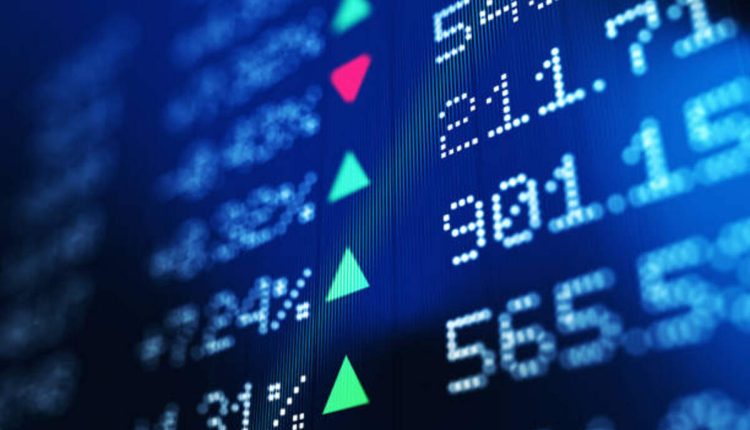The foreign exchange market is an international decentralized exchange that facilitates currency trading. This market establishes the exchange rate. People and businesses exchange currencies for various reasons. What do you consider about forex robot.
Individuals needing to purchase items from overseas or invest in international companies are advised of exchange rates displayed at airports and banks.
The Currency Market
The currency market is an international marketplace where various currencies are traded on an ongoing basis. This decentralized network operates 24/7 to serve its members around the globe and forms part of the foundation for international banking systems.
Major participants in the market include traders, speculators, arbitrageurs, investors, banks/FI, and corporations who all operate from various jurisdictions worldwide to make the currency market both highly efficient and liquid.
Currency markets serve an essential function: they determine the relative values between currencies from different nations, setting prices for various pairs based on whether there is demand from other nations for that pair or not. Currency markets play an integral part in global trade and economic development by enabling people and companies to purchase goods and services from each other across borders as well as managing global risk exposure for business operations.
Exchange Rates
An exchange rate indicates the value of one currency in terms of another currency. Its determination depends on various factors, including actual monetary flows (purchasing power parity and interest rate differentials), expectations for changes in monetary flows, budget and trade deficits or surpluses, large cross-border M&A; deals, and geopolitical events.
Supply and demand are of utmost importance when considering currency exchange. When the value of one currency decreases relative to others, travel abroad or importing goods becomes cheaper for people and companies alike. Conversely, as its value rises against others it will become more costly for foreign investments to make overseas purchases or travel.
Exchange rates fluctuate regularly, making the currency market an ongoing global business that operates 24/7. Participants make decisions based on how these factors relate to their personal financial needs and investment strategies, thus creating an unpredictable trading experience that never stops evolving.
Currency Pairs
Traders can make money by betting that one currency will rise or fall relative to another, by purchasing and then selling one simultaneously.
There are over 28,000 forex pairs to trade on the forex market, but only a select few account for most of its trading volume. These major pairs include euro, US dollar, Japanese yen and British pound; with their high liquidity and low spreads these pair allow traders to easily buy or sell.
Minor or exotic pairs make up the rest of the forex market and typically involve currencies from emerging nations with lower liquidity and larger spreads than major currency pairs. Furthermore, their correlations change daily depending on factors like global economic sentiment or monetary policies.
Non-Bank FX Companies
Some non-bank foreign exchange companies (also referred to as FX brokers) provide currency speculation trading. These firms usually charge commissions on transactions.
Other non-bank forex liquidity providers such as hedge funds and private trading firms offer different forms of service. Utilizing sophisticated algorithms and high-speed networks, they leverage small price differences between markets to profit through arbitrage – an activity known by its acronym – making a living off small price disparities between them and profits generated from them.
Recent headlines demonstrate the integrity of the global spot foreign exchange market is being put under significant strain. Unethical conduct which has affected so many aspects of FX has seriously undermined public confidence, necessitating robust efforts to enhance transparency and enforce codes of conduct across all participants in this industry. Citizens benefit immensely when their essential market functions effectively.
Commercial Companies
Globalization has opened up international markets to businesses, yet also brought with it unique challenges – one being how fluctuating exchange rates affect a business’s bottom line.
Currency fluctuations have an immediate impact on profits, which is why companies need to understand how they can mitigate risk and capitalize on opportunities. To do this effectively, companies should partner with an FX provider with in-depth knowledge of how currencies move and who can develop hedging strategies tailored specifically for them.
Currency markets are tightly interwoven. A company producing goods and services on an international scale must pay workers, suppliers, and investors in their local currency for production; but when selling its goods and services abroad it must receive payment in another currency; this phenomenon is known as translation or transaction influence.
Regulation
Many countries have introduced exchange controls to limit speculation on their local currencies and to regulate forex brokers. Furthermore, such systems often limit how much foreign currency an individual may purchase at once to prevent excessive capital flows into a nation.
The ABA/GFMA letter asked the Board for clarification or relief that would enable “professional non-ECPs” to opt out of disclosure requirements under section 240.6, as well as transaction execution flexibility not allowed under proposed rule 240.6. Unfortunately, however, they declined this request because they believe the existing rules provide enough coverage of these concerns.
Banking institutions offering retail forex transactions must adhere to certain requirements, such as developing and maintaining adequate written policies and procedures to oversee their forex activities. They must also keep records relating to these transactions for at least five years after completion.

